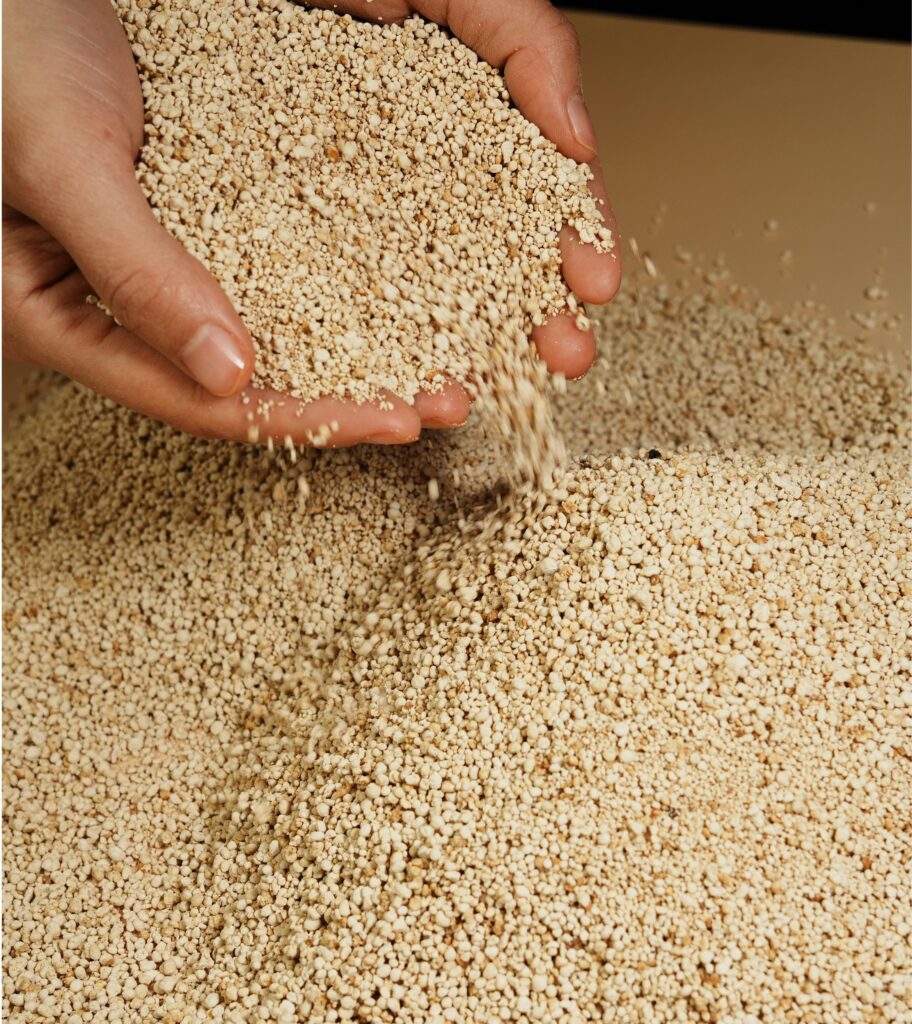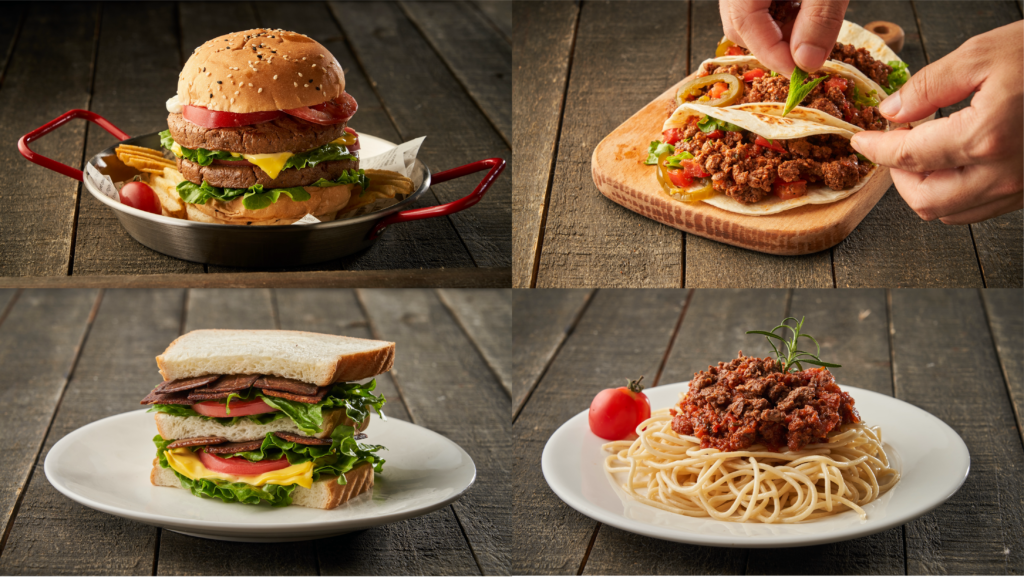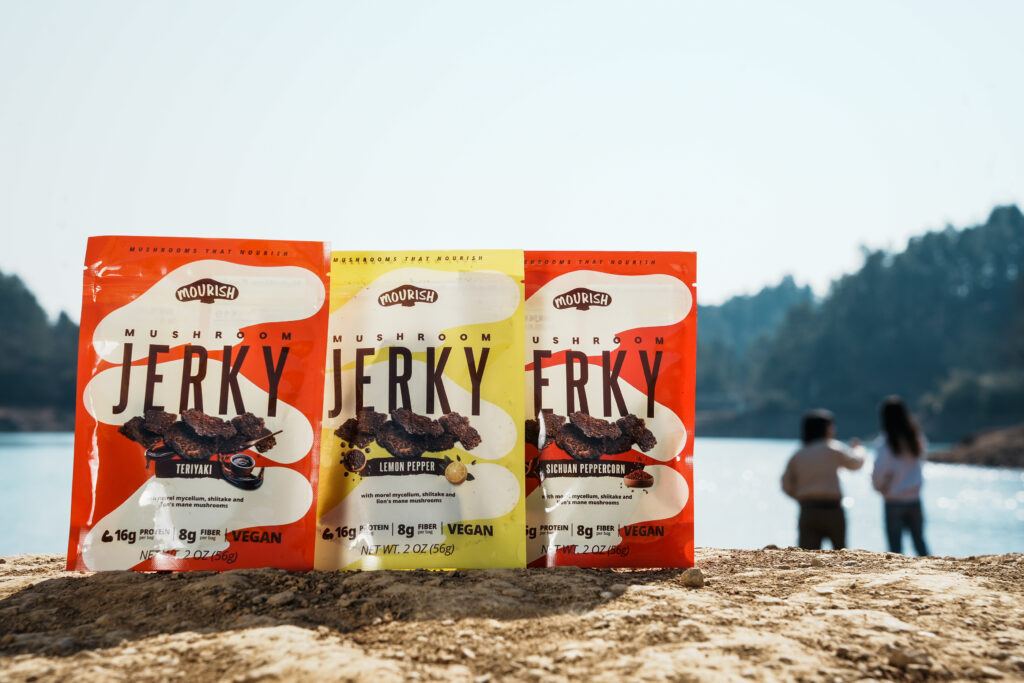
Chinese food tech player CellX has self-determined its first-of-a-kind morel mycelium ingredient as safe in the US, launching high-protein snacks under new consumer brand Mourish.
Chinese startup CellX is entering the US with what it claims is the world’s first morel mushroom mycelium, rolling out a line of jerky products under new consumer brand Mourish (Mushrooms That Nourish).
The firm has self-affirmed its morel ingredient under the Generally Recognized as Safe (GRAS) provision in the US, a regulatory pathway that lets companies sell products based on independent scientific evaluations. While these must adhere to the Food and Drug Administration’s (FDA) requirements, they don’t legally mandate a review by the agency.
The future of self-affirmation is uncertain, with health secretary Robert F Kennedy Jr calling it a loophole and asking the FDA to potentially scrap it. It would require food producers to submit their safety conclusions to the FDA and wait for a no-objections letter before they can commercialise ingredients.
“It’s unfortunate, but… the change will likely take years to take effect,” Ziliang Yang, co-founder and CEO of CellX, tells Green Queen. He confirmed that the firm plans to notify the FDA “in the near future”.
Right now though, Yang is looking forward to building Mourish- jerkies are now available on its website and Amazon- with plans to enter US supermarkets later in the year.
Yang aims to make the morel mycelium available to other manufacturers further down the line. “We have started exploring B2B opportunities since last year, and have a few active partners that we are testing the ingredient with,” he says. “We hope to enable brands to create innovative products with our mushroom mycelium protein.”

How CellX grows its mycelium
What began as a cultivated meat company expanded into mycelium fermentation in 2023. “Our team initially used mycelium as a scaffold for cultivated meat, but we quickly realised the exceptional taste and efficiency of this ingredient,” explains Yang.
“Mushrooms are a superfood, offering incredible nutritional and functional benefits,” he adds. Mycelium has become the darling of the alternative protein world, revered for its ability to assume animal-like flavours, offer complete protein, lower cholesterol, and cut production emissions, among other benefits.
CellX leverages biomass fermentation to grow its ingredient. It first separates mycelium – the root-like structure of filamentous fungi – from the fruiting body, then experiments with different strains and growing conditions to balance flavour and protein content.
It cultivates the mycelium in large fermentation tanks, where it grows and multiplies into nutrient-rich protein. At this stage, it’s carefully separated from the fermentation broth and steamed alongside shiitake mushrooms to enhance the natural flavour of the final ingredient.

Why it chose morel mushrooms
“By harnessing mycelium fermentation, we significantly increased its protein content, making it an ideal protein alternative,” says Yang. The morel mycelium boasts 5% protein, 25% fibre, and essential vitamins and minerals, giving a makeover to what are historically known in France as the “mushrooms of kings”.
Morels, CellX explains, are held in high regard by foragers and chefs for their umami, earthy and nutty flavour, and meaty texture. They’re relatively rare, making them some of the most expensive wild mushrooms available.
“Our decision to focus on morel over other fungi species was deliberate,” Yang says. “We selected our strain from thousands of options, following years of research and development with our university partner. Our proprietary morel strain was isolated from Shangri-La. Our asset-light approach, combined with strategic partnerships, enables cost-efficient, high-quality production.”
The firm uses a mix of spices to zhuzh up the mycelium before shaping it into snackable bites and baking it on low heat (which helps preserve the nutrients and umami notes). The jerkies – which also contain lion’s mane mushroom powder and pea protein – are available in teriyaki, lemon-pepper, and Sichuan peppercorn flavours. Each 1oz pack contains 8g of protein, 4g of fibre, and zero saturated fat.

CellX pivots to licensing model for cultivated meat
CellX, which has relocated its headquarters from Shanghai to San Francisco, has scaled up production of its mycelium to 12,000-litre fermenters, with immediate plans to expand to 30,000 and 120,000 litres.
“We are looking at additional products to add to our portfolio later this year, anywhere from snacks and meat alternatives, to protein beverages,” says Yang. The company had initially targeted hybrid meats – mixing its mycelium with cultivated meat – however, that is no longer a focus for its consumer brand.
“If there are B2B customers who want to use our morel mushroom mycelium ingredient to create these products, we are happy to sell the ingredient,” he says.
This is reflective of CellX’s cultivated meat pivot too. While it operates a 2,000-litre pilot facility in China – the country’s largest – it doesn’t plan on selling its own products, and is instead focusing on a tech licensing model. It aims to help cultivated meat startups scale up by offering an end-to-end production solution, proprietary cell lines, culture media and bioprocesses, and support for regulatory filings.
“The underlying thinking behind the shift is that we want to generate revenue and even profits faster, and engage with consumers and customers faster to prove product market fit,” says Yang.

Breaking even without further outside capital
“I think cultivated meat is still a relatively nascent industry that needs a significant amount of capital, and patience from all stakeholders. It’s unfortunate that the overall sentiment has shifted, and the fundraising environment makes it extremely difficult for companies to go from R&D to commercialisation,” he adds. Indeed, cultivated meat startups attracted 40% less investment in 2024, following a 75% dip the year before.
CellX itself has raised $20M to date. “We are open to raising more capital, but it won’t be the focus. Our focus is to generate revenue through our B2C brand Mourish, B2B sales of mushroom mycelium ingredient, and licensing cultivated meat technologies,” says Yang.
“It’s our goal to break even without additional outside capital. However, additional capital is always welcomed as it can help us expand to additional channels, products, and markets,” he adds.
“We are also fortunate to have started the mushroom mycelium pipeline three years ago, and it’s ready to commercialise now. So the choice to focus on commercialising mushroom mycelium, and pivoting to licensing the cultivated meat tech is natural, as we shift our focus to generating revenue, and finding product market fit.”
The post CellX Debuts World’s First Morel Mycelium Jerky with New US Brand Mourish appeared first on Green Queen.
This post was originally published on Green Queen.